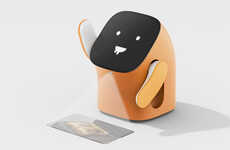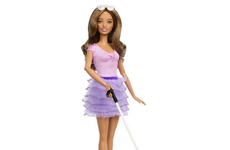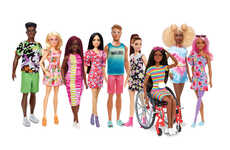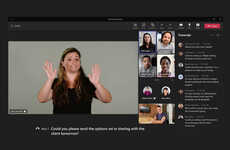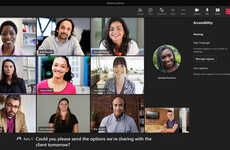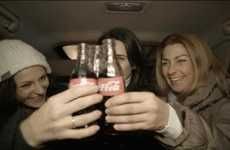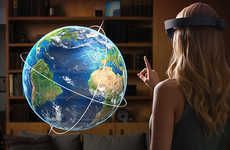
Barbie Parker Translates the Entire Musical Experience in Signs
Simal Yilmaz — March 5, 2013 — Social Good
While most sign language interpreters devote their time to helping others with educational pursuits, Barbie Parker has chosen a different path.
She combined her career with her passion for music and started doing sign language interpretations for rock concerts. This free-spirited woman translates lyrics as well as the music itself to her customers.
“Music is such a large part of who I am,” she says. “I want to be able to open up that experience.” Barbie Parker mouths words, air guitars and drums. For a music enthusiast and a sign linguist, I cannot think of a more fitting career choice and wholeheartedly congratulate this woman for her ability to integrate what she does into what she loves.
She combined her career with her passion for music and started doing sign language interpretations for rock concerts. This free-spirited woman translates lyrics as well as the music itself to her customers.
“Music is such a large part of who I am,” she says. “I want to be able to open up that experience.” Barbie Parker mouths words, air guitars and drums. For a music enthusiast and a sign linguist, I cannot think of a more fitting career choice and wholeheartedly congratulate this woman for her ability to integrate what she does into what she loves.
Trend Themes
1. Concert Accessibility for the Deaf and Hard of Hearing - Providing more inclusive concert experiences through sign language interpretation, closed captioning, and other accommodations.
2. Entertainment Interpretation Professionals - Emerging demand for professionals who can bridge the gap between entertainment and accessibility through interpretation and technology.
3. Accessibility as a Creative Element - Incorporating accessibility needs into the creative process, creating new and innovative ways to make entertainment experiences inclusive for all.
Industry Implications
1. Music Industry - Opportunities to increase revenue and reach a wider audience by investing in accessibility accommodations for concerts and music events.
2. Entertainment Industry - A need for more professionals who specialize in making entertainment accessible to individuals with disabilities, creating jobs and new business opportunities.
3. Assistive Technology Industry - Innovation in the development of new assistive technologies designed specifically for facilitating access to musical experiences for the deaf and hard of hearing.
1.2
Score
Popularity
Activity
Freshness


